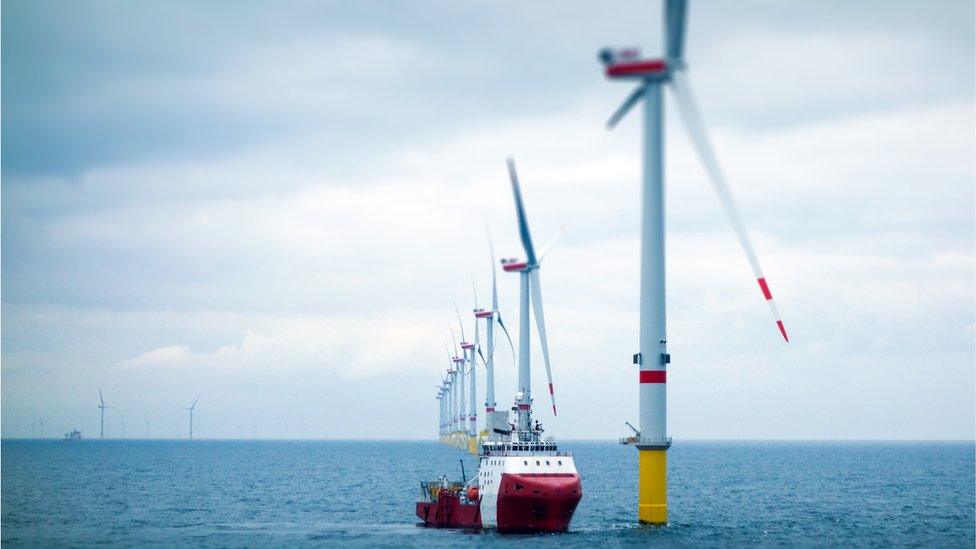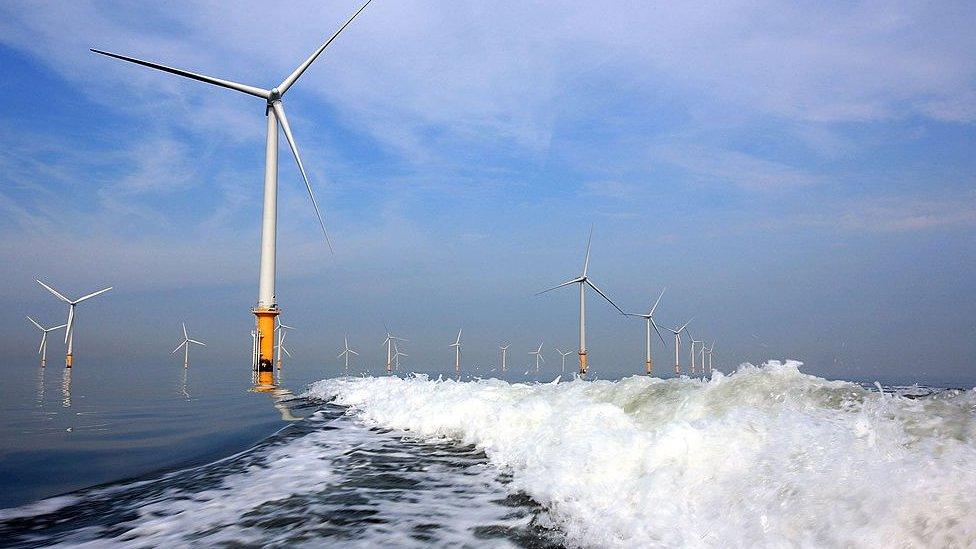Campbeltown wind turbine factory closes permanently
- Published

CS Wind manufactured equipment for both onshore and offshore wind farms
A wind turbine factory in Argyll has been permanently closed, with administrators now selling off equipment used at the site.
Owners CS Wind effectively mothballed the Campbeltown factory, which manufactured offshore and onshore wind farm equipment, in the spring of 2020.
The company said "deteriorating market conditions" had led to a lack of new contracts and declining revenues.
All staff have now either left or been made redundant.
Three-quarters of the 94-strong workforce had already departed in August 2020 with only a handful of staff left running the facility.
The manufacturing plant, located at the Machrihanish Business Park near Campbeltown, was bought by CS Wind, a South Korean firm, in 2016.
At the time it was Britain's only UK facility for manufacturing onshore and offshore wind towers.
It previously went into administration in 2011 before a partnership between Scottish and Southern Energy and Marsh Wind Technology saved the factory.
After CS Wind failed to secure major work with the Kincardine and Triton Knoll offshore projects in 2019, the majority of the staff were made redundant.
At the time the Unite union called the move a "major blow to Scotland's renewables manufacturing capacity."

"Market conditions" are being blamed for CS Wind (UK) being wound up, yet market conditions for wind power have never looked better.
Thousands of towers are required for turbines being planted in the North Sea, with a huge further boost planned in the next 10 years.
Existing onshore windfarms are being renewed after 25 years of torque and tension from generating power.
So there must be other explanations for the repeated failure to make the Campbeltown factory into a success story.
Part of the problem is thought to be the South Korean ownership failing to give the plant the support it needed in the past five years. There's been a stand-off with Highlands and Islands Enterprise, which provided public funding.
But there is a wider question about the failure to link the renewable power revolution to a manufacturing base in Scotland.
The Scottish government sunk more than £37m in three BiFab yards in Fife and Lewis for fabricating offshore platforms. That also went into administration.
There, as with Kintyre, the problem may be one of lacking sufficient scale for efficient production.
A brighter outlook for manufacturing tidal turbines was underlined this week with a £6m equity stake taken by the Scottish National Investment Bank in Nova Innovation.
Based in Midlothian, manufacturing in Leith, and with a pioneering link to the grid in waters off Shetland, it plans to double the current workforce of 35, and open doors into North American and south-east Asian markets.
A plan published by the offshore wind industry council recommends a focused effort for supply and manufacturing on the Cromarty Firth, with capital investment required to prepare quaysides for the next wave of activity.
There may also be a need for a clearer and more interventionist industrial strategy, to go alongside Scottish government plans for a better trained workforce for such jobs.

Assets for sale
CS Wind's directors said there were "no prospects of any recovery in the market" after placing the business into administration.
A statement from joint administrators Michelle Elliot and Tom MacLennan said they will now market the company's assets for sale, "including various plant and machinery and a residential property in the heart of Campbeltown that had been used by management for accommodation".
Pat Rafferty, Scottish Secretary of the Unite union, said the Scottish government sat back and watched from the sideline as the firm went bust.
"It's high time they accept that on their watch, for over a decade now, there has been minimal green and low-carbon manufacturing jobs directly created in Scotland," he said.
"There is no jobs revolution - it's a myth."
- Published24 June 2019
